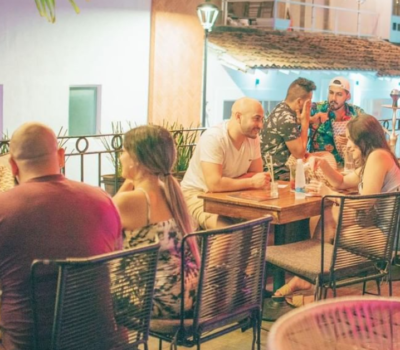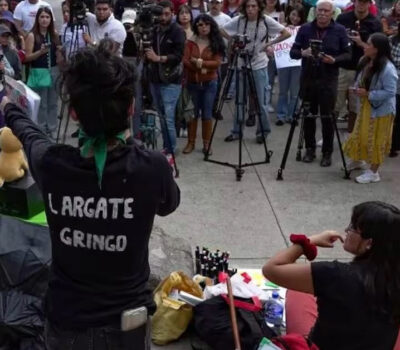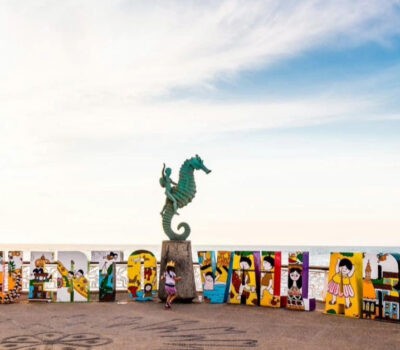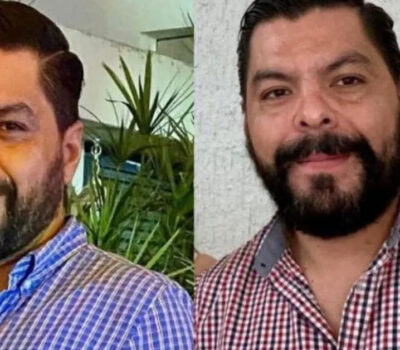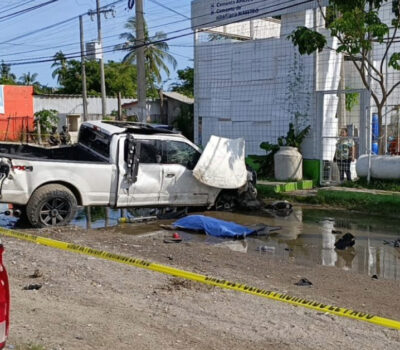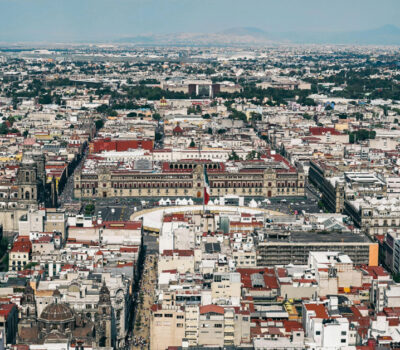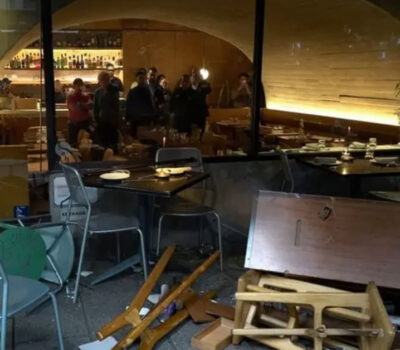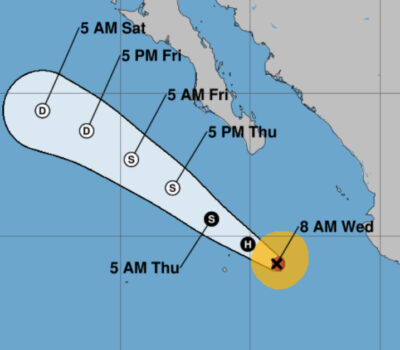Mexico on Saturday topped 1 million registered coronavirus cases and nearly 100,000 test-confirmed deaths, though officials agree the number is probably much higher.
How did Mexico get here? By marching resolutely, even defiantly, against many internationally accepted practices in pandemic management, from face mask wearing, to lockdowns, testing and contact tracing.
What is more, officials in Mexico claim science is on their side. Assistant Health Secretary Hugo López-Gatell says any wider testing would be “a waste of time, effort and money.” Face masks, López-Gatell says, “are an auxiliary measure to prevent spreading the virus. They do not protect us, but they are useful for protecting other people.”
President Andres Manuel López Obrador almost never wears a mask, and López-Gatell only occasionally does.
Except science does not appear to be on their side. International experts have recommended mass testing, and say face masks protect both the wearer and other people.
“They say there is no evidence. No, excuse me, there is evidence,” said former health secretary Dr. José Narro. “In May, we already began to have empirical evidence and well-documented scientific studies began to appear stressing the importance of face masks and the need for testing.”
“What I can say is the (government) strategy did not have the necessary flexibility to adjust to the increasing amount of knowledge” about the disease, Narro said.
In part that has been a hallmark of López Obrador’s administration: never back down, never change course, and if challenged, double down.
His main promise to Mexicans is that there would be enough hospital beds for everyone who needs one, and his government has largely fulfilled that basic promise — even if Mexicans are so afraid of those hospitals they often wait until the last moment to go for treatment, at which point, doctors say, it’s often too late. That fear was not unfounded; early in the pandemic, three-quarters of patients intubated and put on ventilators in Mexico’s largest hospital network died.
That resistance was what Mexico City human resources manager Lorena Salas felt when her 76-year-old father, Jaime Salas Osuna, began to show signs of what could be COVID-19.
“The idea was mainly to stay at home, no? Thinking of going to the hospital was not an option, we were terrified that there he would surely be infected,” said Salas.
Instead, she sped down to the resort city of Acapulco, where her father lived, and when she arrived, she found him thin, sweating and confused.
“At that moment the delivery service arrived with the oxygen meter, and his oxygen saturation was 77,” she recalled. (A normal reading is 93 to 98). “At that moment I felt like a bucket of cold water had fallen on me. We just looked at each other. I said ’Dad, do you have COVID?”
Salas drove him to Mexico City; he didn’t want to be intubated, but doctors explained they had to. He underwent two operations, two intubations and struggled for 13 days before he died on Oct. 20.
To its credit, that is one of the few areas where the government’s public message has changed: where officials once urged people with the disease to stay home as long as possible, they now advise those over 60 or with risk factors like diabetes or obesity to seek treatment immediately.
But on most other points, the insistence that the rest of the world is wrong and Mexico’s approach is right appears to have taken a toll in lives.
Late Saturday, Mexican Director General of Health Promotion Ricardo Cortés Alcalá announced that the number of confirmed coronavirus cases had reached 1,003,253, with at least 98,259 deaths from COVID-19.
Since the pandemic began, Mexico has managed to administer only about 2.5 million tests to its citizens; only seriously ill people get tested in Mexico. Testing only 1.9% of the population since the pandemic began has made it hard, if not impossible, to effectively trace contacts, catch outbreaks early or identify asymptomatic cases.
Even in Mexico City, one of the few places that has paid lip-service to trying to identify cases before they get to a hospital, the efforts have been incredibly weak.
To be fair, few countries have managed to do contact tracing well; Mexico, with fewer financial resources and where half the population is poor, self-employed or working off the books, there was little chance of strict control or surveillance.
Mexico City has tried an alternative approach, which is to identify neighborhoods where clusters of cases have occurred, and give them special attention. Lurid yellow warning posters reading “Caution! You are entering an area of high infection” now dot the city. Special kiosks are set up in such neighborhoods to provide some tests, and a few health workers have gone door-to-door looking for cases. But that is rare.
For doctors on the front lines, the official response has been at times frustrating.
Dr. Arturo Galindo, head of the infectious disease program at the National Medical Sciences and Nutrition Institute, one of Mexico’s leading public hospitals, has seen his intensive care unit fill up to 100% capacity in recent weeks as Mexicans relaxed and began holding more get-togethers. The hospital is now sending critical COVID-19 cases to other treatment centers.
“I have had arguments on the street when I say “hey, put your face mask on,” and people argue with me, citing the argument ‘well, the president doesn’t,’ and that is their only argument,” Galindo said. “It wouldn’t be bad if he (López Obrador) set an example.”
Speaking for himself, not his hospital, Galindo also voices support for more testing, and senses there are signs of a new-found willingness to consider the idea — not the least because of the advent of rapid, cheap new antigen tests.
But while he says some things are improving — people are now getting to hospitals sooner, thus improving their chances — some recent developments make him worry.
Except for a few states, nobody in Mexico has even attempted to enforce a lockdown, or mask-wearing. The closest thing most local authorities have done has been to force some workplaces to shut down, and fine or close businesses that allow too many customers inside at once. Beyond that — travel, mask wearing, parties, weddings — there is very little enforcement. And as the pandemic stretched into its tenth month, people began to let their guard down.
That has led to super-spreader events like an Oct. 3 wedding of a soap opera actor and the daughter of a local businessman in the northern border city of Mexicali. Authorities in Mexico say more than 100 people are believed to have been infected by the coronavirus at the wedding, which about 300 people attended.
There have been instances of outright rebellion. On Oct. 25, a couple of hundred young people gathered for an illegal concert in an empty lot on the outskirts of the city of Toluca, just west of Mexico City. On videos of the event, the lead singer of one band can be heard telling asking the crowd, “Honestly, who doesn’t give a damn about the pandemic? Whoever doesn’t give a damn about coronavirus, raise your beer!” Dozens raised their cups.
Salas, whose father died and who herself was infected, said people have to abandon conspiracy theories and the strange belief it won’t happen to them.
“I see a lot of apathy, a lot of people being irresponsible, not giving a damn or not believing the disease is real. People still think it is something invented by the government.” Salas said. “It is something that people have to realize does exist, it is real.”
Galindo said those on the front lines are shocked when they look at social media. “They have this sense of frustration seeing photos of parties, meetings,” Galindo said. “They have been locked up for six months, fighting, going without sleep or without eating, and then they see that, and it’s shocking.”
Mexico on Saturday topped 1 million registered coronavirus cases and nearly 100,000 test-confirmed deaths, though officials agree the number is probably much . . .


